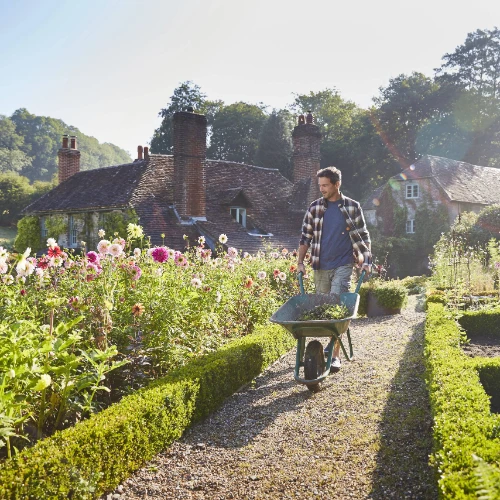Farm & Estate Insurance
We offer a comprehensive range of farm and estate insurance policies to suits farmers, landowners, and estates of all sizes.

Why choose Howden for farm and estate insurance?
Here at Howden, when it comes to getting you your farm and estate insurance, we pride ourselves on doing the heavy lifting, so you don’t have to. Thanks to the collaborative relationships we have with our selected panel of rural insurers, we make the process of comparing multiple insurance policies, on your behalf, simple and easy. What’s not to like?
As an experienced insurance broker, we also know that each rural policy needs to be as individual as its owner and their farm or estate, and that’s why we provide a bespoke, personalised service, focused on getting to know you and finding out exactly what you want from your rural cover.
Just know, whether you need to make a claim, purchase a new rural policy, or renew an existing one, we’re always here to help.
Benefits of working with Howden:
- You can trust us – we’re rated Excellent on Trustpilot.
- We’re driven to save you time, money, and hassle.
- Benefit from a tailored service that comparison sites can’t provide.
- Speak with your local branch, within your community.
- We’re right by your side in the event of a claim.
Farm and estate insurance with Howden
Whilst it's a privilege to have your own land, it also comes with lots of responsibility and specific perils. You're liable if something goes wrong on your property, and a compensation claim can be very pricey, even if nothing comes of it. The legal fees for the defence alone can make a sizable dent in your wallet too.
By getting farm and estate insurance, you can protect your land against unexpected expenses and claims, as well as protect your income in case of catastrophes such as floods, fire, and storm damage. Although it’s not legally required, and there's no way you can fully prepare for or prevent the worst from happening, getting farm and estate insurance can give you the best support and protection you need to help ease the burden of financial demands.
This rural insurance can be used for a variety of land types too, such as farms, large estates, woodlands, fields, and even private car parks. But what does a typical farm and estate insurance policy provide cover for exactly?
- Public Liability
- Employers’ Liability
- Environmental Liability
- Buildings & Contents
- Livestock
- Rural motors
Whilst each of these aspects of your farm or estate should be covered as standard under this policy, it’s important to recognise that every insurer is different and has their own limitations on what is and isn’t covered.
This is where we can help. A rural insurance broker can help you find cover that is tailored for your individual needs, whilst also supporting you with research, price comparisons and any other concerns you may have.
Speak to us today and get started with finding a farm and estate insurance policy that’s the perfect fit for you and property.
Rural Insurance
Specialist rural cover from a dedicated team of experts
Whether you need to cover a farm, an estate, any motor vehicles, your stock, or equipment, we can help you find your ideal rural insurance policy.
Rural Home and Contents Insurance
Rural home and contents cover tailored to your buildings and belongings.
We understand the importance of having rural home and contents cover that does what it’s supposed to; protect your farm’s buildings and your belongings.
Rural Motor Insurance
Insurance that’s right for your farm vehicles
Our team of industry experts support farmers by helping them find comprehensive, yet flexible, insurance cover plans which can protect each of their farm vehicles, sometimes under the same policy.

